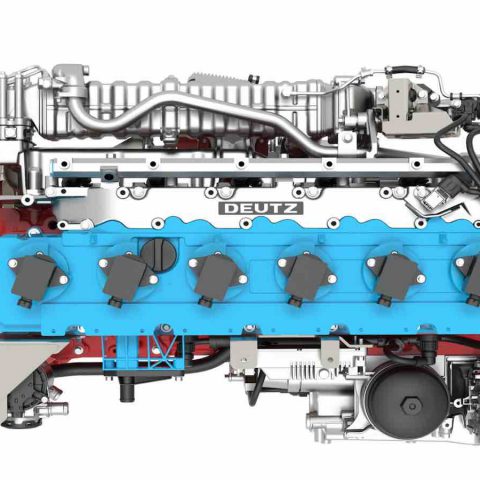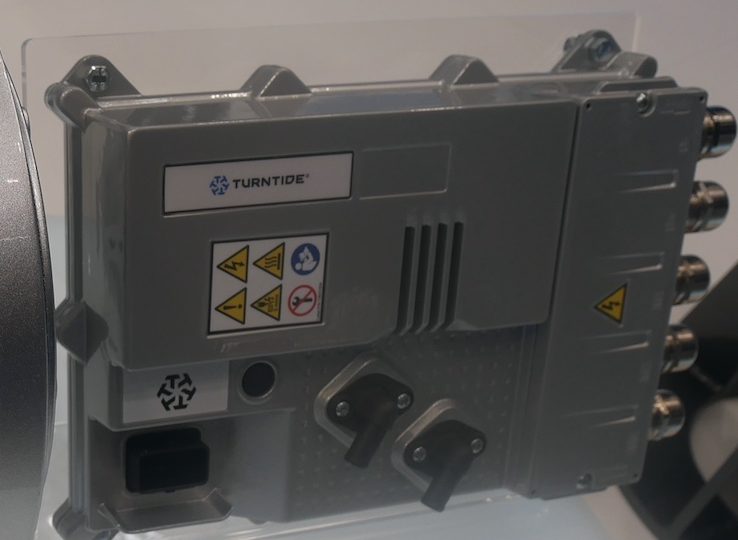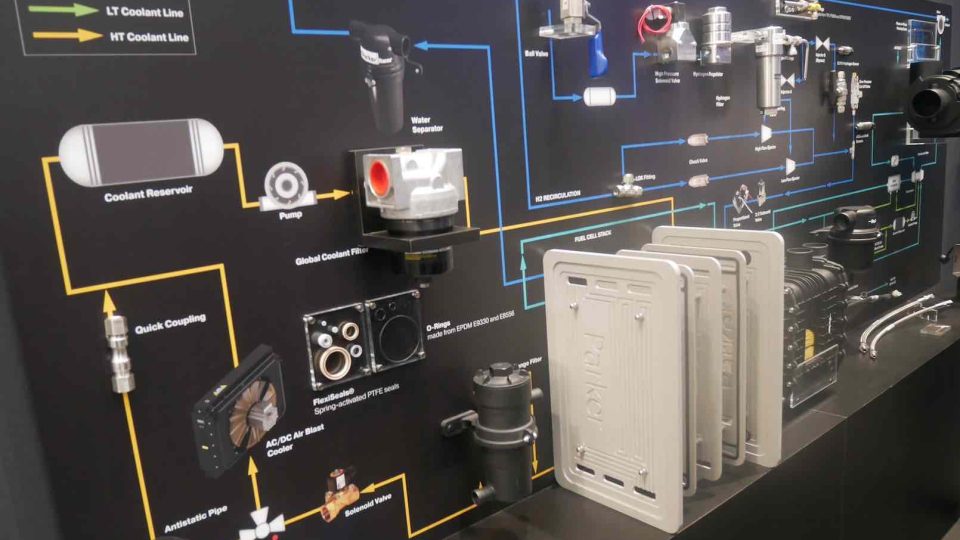Deutz and hydrogen. Along the Rhein river
DEUTZ and RheinEnergie team up to generate power from a hydrogen engine

Deutz and hydrogen, we mentioned last year at the time of the presentation of the TCD 7.8 H2 at the Conexpo in Las Vegas. The time has come for Deutz to proceed into the application phase, after a year and a half since the Conexpo and two years since the Bauma Munich preview.
Deutz and RheinEnergie to improve hydrogen
According to Deutz, the two companies from Cologne are joining forces to run a pilot project in which power is to be generated by a stationary hydrogen engine. Deutz is a leading global manufacturer of engines and drive technology, while RheinEnergie is a utility provider that has a clear commitment to the green energy transition. In its climate roadmap, RheinEnergie has formulated clear targets for the carbon-neutral generation of energy. Hydrogen will have an important role to play here, as a long-term replacement for fossil fuels such as natural gas. From the beginning of 2022, the intention is to use a hydrogen engine to power a generator that will produce 170 kilovolt-ampere of electricity. The pilot project will be run at RheinEnergie’s cogeneration plant in Cologne-Niehl. RheinEnergie is procuring the hydrogen and has already secured its supply.
Steinkamp, Hiller and Wellenzohn stated
“We are looking to trial this first system there and to work with the experts from DEUTZ to study the stationary operation of this engine in combination with the generator,” says Dieter Steinkamp, CEO of RheinEnergie. “This compact system is ideal for use as a decentralized source of energy for climate-compatible buildings and urban quarters, and perhaps also for use in places that are not yet connected to the electricity grid or heating network.”
The first test cycle, lasting around six months, will be focused solely on generating power using the DEUTZ engine. This will be followed by a second phase, also lasting several months, in which the waste heat from the system will also be utilized (cogeneration).
The engine that is being trialed has been developed inhouse by DEUTZ, based on an existing diesel engine. “We are extremely proud that our hydrogen engine is ready for the market,” says Frank Hiller, CEO of DEUTZ AG. “Initial trials have been successfully completed on the test rig. Now we can look forward to putting the TCG 7.8 H2 through its paces in real-world conditions as part of the pilot project with RheinEnergie.”
Due to the available infrastructure, particularly in terms of the supply situation for hydrogen, DEUTZ envisages the engine initially being used in stationary equipment. “But essentially the hydrogen engine with a power output of 200 kilowatts is suitable for all current DEUTZ applications in the off-highway segment,” explains Michael Wellenzohn, member of the DEUTZ Board of Management responsible for sales, marketing, and service. “We are planning to go into volume production from 2024. This first real-world trial is an important milestone on that journey – one that we are delighted to be embarking on with RheinEnergie by our side.”
Small scale with a huge potential
The two partners will initially be investing a combined total of around €1.3 million in the operating trial at the Niehl plant. And though this pilot project is relatively small in scale, it has the potential to be the beginning of decentralized, sustainable, and greenhouse-gas-free energy supply in urban centers – particularly when the price of hydrogen falls to a level that makes it a viable option for the market.









